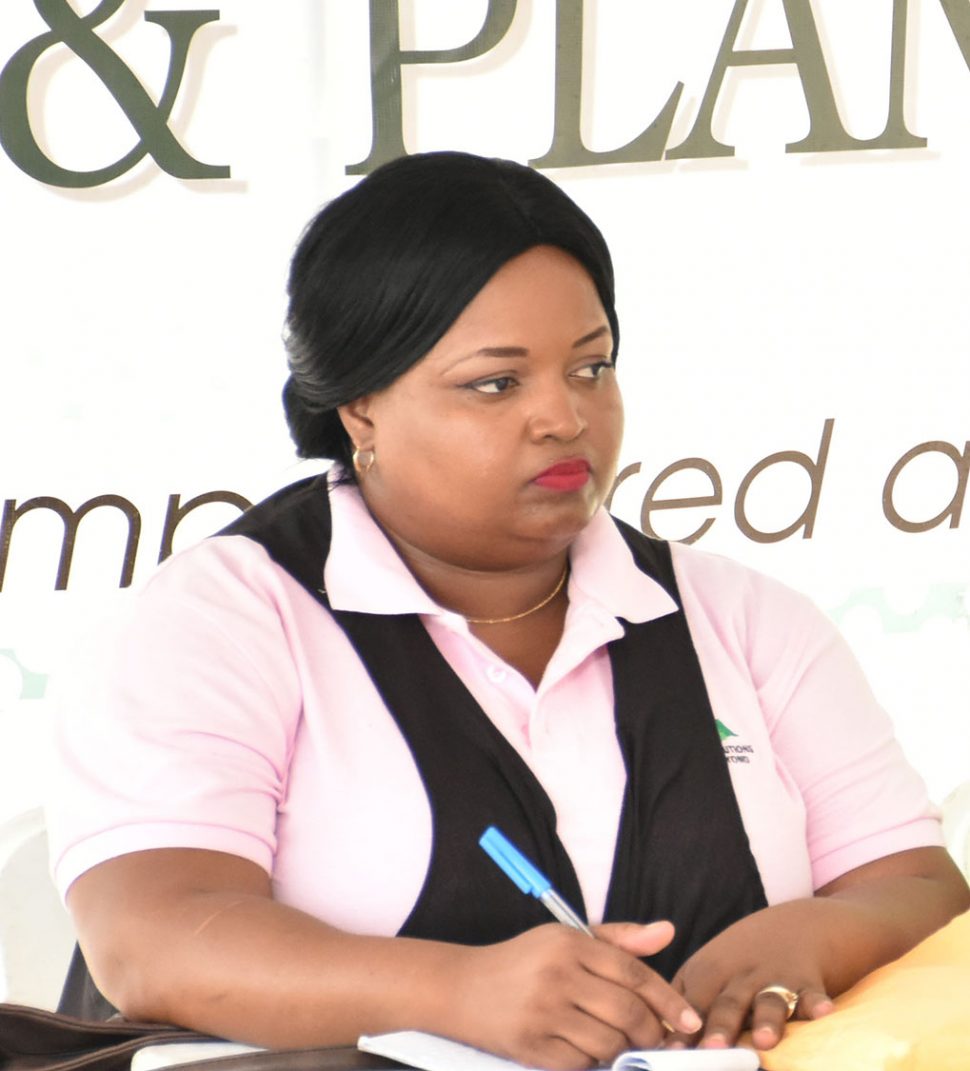Applications are now being received from persons in low-income households who want to benefit from a large housing project funded by the Inter-American Development Bank (IDB).
On Tuesday, the Central Housing and Planning Authority (CH&PA) said at a press conference that plans remain on stream for the US$27 million housing and infrastructural project.
It targets a total of 2,500 low-income households, and low-income areas in Georgetown, the lower East Coast Demerara, East Bank Demerara and West Bank Demerara through the CHPA’s Adequate Housing and Urban Accessibility Programme.
The application period opened on November 1, 2018 and ends on February 1, 2019.
Application forms will be available at all local authorities including the offices of the regional democratic councils in the project area and at the CHPA head office in Brickdam on Tuesdays, Wednesdays and Thursdays from 8.00 am to 3.30 pm. All completed forms supported by relevant documentation are to be returned to the CHPA head office.
The project is being executed in three phases. Minister in the Ministry of Communities Valerie Adams-Yearwood reiterated at a press conference on Tuesday that the phases are affordable and sustainable housing to the tune of US$10 million, consolidation of existing housing schemes, US$16 million and institutional strengthening, US$1 million. These figures are slightly different from the ones which had been issued earlier. Then, US$18m had been stated for existing housing schemes and US$2m for institutional strengthening.
The affordable and sustainable housing has two components, Deputy Director of Community Development Donnel Bess-Bascom noted. The first, a US$10 million core home support programme, targets 250 low income households, including single parents who have been allocated low income house lots in housing areas that have been developed or regularised by the CHPA. The status of a low income household varies on circumstances. However, a monthly income of $75,000 in a household with a dependent below the age of 21 is considered low income.
To qualify for the programme, the applicant of the household must have proof of being the legitimate owner of the allocated house lot, must be 18 years of age and must be living on the lot in structures referred to as shacks.
The household selected for the core home support programme will be required to contribute $100,000 which must be paid over a three-month period with the first half of $50,000 paid in the first installment.
“We will also be giving special considerations to interventions that benefit persons who have disabilities,” Bess-Bascom said.
The core home support programme covers up to Grove/Diamond on the East Bank Demerara, up to La Bonne Intention on the East Coast Demerara and up to Parfaite Harmonie on the West Bank Demerara.
The second component of the housing programme, a US$10 million home improvement subsidy, also targets 2,000 owners of low income households, including the single parent household. Unlike the core home support programme, Bess-Bascom said, the home improvement subsidies is not limited to housing areas that were developed by the CHPA.
Applicants must be living on the lot, in the building they are applying for the improvement.
The home improvement subsidy is up to $500,000 in building materials which will be used to effect repairs, improvement, or as extensions to an existing building.
The beneficiary, Bess-Bascom said, will be required to provide 100 per cent of the labour for the improvement works.
Under this programme, the specific types of improvements that qualify for financing include repairs to roofs, floors including the completion of bathrooms, toilets, improvement of earthen or wooden floors and replacement of walls with more durable materials.
Rainwater harvesting, electrical works, plumbing the replacement of a pit latrine with an indoor water closet or septic tank, and modifications for people with disabilities are also eligible.
The third component, the consolidation of the existing housing areas, Project Director Omar Narine said covers low income sections of the housing areas the CHPA has developed.
Scope of works for includes the upgrading of 34 kilometres of asphalted roads, 20 kilometres of drainage improvement including the construction of concrete drains where necessary, eight kilometres of sidewalks, installation of 10 kilometres of solar integrated street lights in keeping with the Green State Development Strategy and the construction of eight recreational facilities in low income areas.
Narine said the project will begin in Sophia and within the project area already outlined.
Within a week, he said, local and international contractors will be invited to bid to undertake the works. Works are expected to start in the first quarter of 2019.





